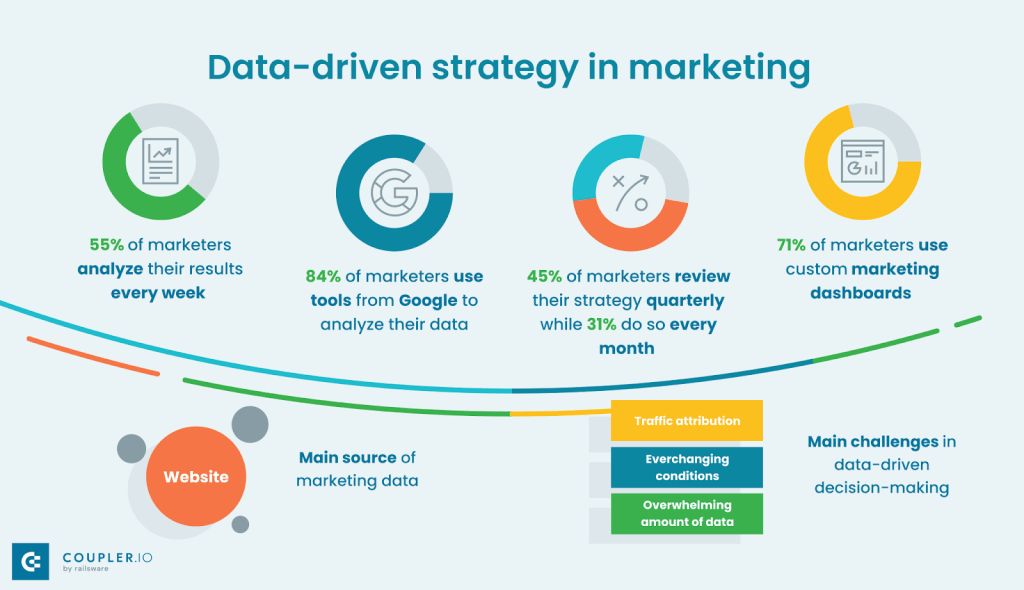The Impact Of CRM Analytics On Marketing Campaigns: Unlocking The Power Of Data-Driven Decision Making
The Impact of CRM Analytics on Marketing Campaigns: Unlocking the Power of Data-Driven Decision Making
In today's highly competitive business landscape, companies are constantly seeking innovative ways to stay ahead of the curve and maximize their return on investment (ROI). One key strategy that has gained significant traction in recent years is the use of CRM analytics to inform and optimize marketing campaigns. The impact of CRM analytics on marketing campaigns cannot be overstated, as it has revolutionized the way businesses interact with their customers, gather insights, and make data-driven decisions. In this article, we'll delve into the world of CRM analytics and explore its significant impact on marketing campaigns.
What is CRM Analytics?
Before we dive into the impact of CRM analytics on marketing campaigns, let's start with the basics. CRM analytics, also known as CRM data analytics or CRM business intelligence, refers to the process of collecting, analyzing, and interpreting data from customer relationship management (CRM) systems. CRM systems are designed to manage and automate many aspects of a company's interactions with current and future customers, including sales, marketing, and customer service activities. By leveraging CRM analytics, businesses can gain a deeper understanding of their customers' behavior, preferences, and needs, which can inform and optimize their marketing strategies.
The Benefits of CRM Analytics
So, how can CRM analytics benefit marketing campaigns? Here are just a few of the many benefits:
-
- Personalization: CRM analytics enables businesses to segment their customers based on demographic, behavioral, and transactional data. This allows marketers to create highly targeted and personalized marketing campaigns that resonate with specific customer groups.
- Improved Customer Insights: CRM analytics provides businesses with a 360-degree view of their customers, including their purchase history, browsing behavior, and social media interactions. This helps marketers to gain a deeper understanding of their customers' needs and preferences.
- Enhanced Customer Experience: CRM analytics enables businesses to identify areas where they can improve the customer experience. By analyzing customer interactions and feedback, marketers can identify pain points and develop strategies to address them.
- Increased Efficiency: CRM analytics automates many manual processes, such as data collection and analysis, which saves marketers time and resources. This enables them to focus on higher-value activities, such as creative strategy and campaign optimization.

- Better ROI Measurement: CRM analytics enables businesses to measure the impact of their marketing campaigns on sales and revenue. This helps marketers to optimize their campaigns and allocate their budget more effectively.
The Impact of CRM Analytics on Marketing Campaigns
So, what is the impact of CRM analytics on marketing campaigns? Here are just a few examples:

- Increased Conversion Rates: By segmenting customers and creating targeted marketing campaigns, businesses can increase conversion rates and boost sales. According to a study by HubSpot, companies that use CRM analytics experience a 25% higher conversion rate compared to those that don't.
- Improved Customer Retention: CRM analytics enables businesses to identify at-risk customers and develop targeted campaigns to retain them. According to a study by Gartner, businesses that use CRM analytics experience a 25% lower customer churn rate compared to those that don't.
- Enhanced Customer Engagement: CRM analytics enables businesses to create highly personalized and engaging marketing campaigns that resonate with their customers. According to a study by Forrester, businesses that use CRM analytics experience a 30% higher customer engagement rate compared to those that don't.
- Increased ROI: CRM analytics enables businesses to measure the impact of their marketing campaigns on sales and revenue. According to a study by Forrester, businesses that use CRM analytics experience a 20% higher ROI compared to those that don't.

Examples of Successful CRM Analytics Implementation
So, how have businesses successfully implemented CRM analytics to inform and optimize their marketing campaigns? Here are just a few examples:
- American Express: American Express uses CRM analytics to create highly targeted marketing campaigns for its customers. By segmenting customers based on their purchase behavior and demographic data, American Express is able to create highly personalized offers that resonate with its customers.
- Nordstrom: Nordstrom uses CRM analytics to create highly personalized marketing campaigns for its customers. By analyzing customer purchase behavior and browsing history, Nordstrom is able to create targeted offers and recommendations that resonate with its customers.
- Starbucks: Starbucks uses CRM analytics to create highly targeted marketing campaigns for its customers. By segmenting customers based on their location and purchase behavior, Starbucks is able to create highly personalized offers that resonate with its customers.
Challenges of Implementing CRM Analytics
While CRM analytics can have a significant impact on marketing campaigns, there are also several challenges to implementing it. Here are just a few of the challenges:
- Data Quality: One of the biggest challenges of implementing CRM analytics is ensuring that the data is accurate and reliable. If the data is poor quality, the insights generated by CRM analytics will also be poor.
- Data Integration: Another challenge of implementing CRM analytics is integrating data from different sources. Many businesses have multiple CRM systems and marketing automation platforms, which can make it difficult to integrate data and generate insights.
- Talent and Skills: Finally, implementing CRM analytics requires specialized talent and skills. Businesses need to have data analysts and scientists who can analyze and interpret the data, and develop insights and recommendations.
Best Practices for Implementing CRM Analytics
So, what are the best practices for implementing CRM analytics? Here are just a few:
- Define Clear Goals: Before implementing CRM analytics, businesses need to define clear goals and objectives. What do they want to achieve with CRM analytics? What metrics do they want to improve?
- Choose the Right Tools: Businesses need to choose the right CRM analytics tools that meet their needs. There are many different tools available, and each has its strengths and weaknesses.
- Ensure Data Quality: Businesses need to ensure that their data is accurate and reliable. This requires implementing data governance policies and procedures, and ensuring that data is integrated from different sources.
- Develop Talent and Skills: Finally, businesses need to develop the talent and skills needed to implement CRM analytics. This requires hiring data analysts and scientists, and training existing staff on CRM analytics tools and techniques.
The Impact of CRM Analytics on Marketing Campaigns: Conclusion
The impact of CRM analytics on marketing campaigns cannot be overstated. By providing businesses with a 360-degree view of their customers, CRM analytics enables marketers to create highly targeted and personalized marketing campaigns that resonate with their customers. By automating manual processes and saving marketers time and resources, CRM analytics also enables businesses to focus on higher-value activities, such as creative strategy and campaign optimization. Whether you're a small business or a large enterprise, CRM analytics is a must-have for any business that wants to stay ahead of the curve and maximize its ROI.
Comments
Post a Comment